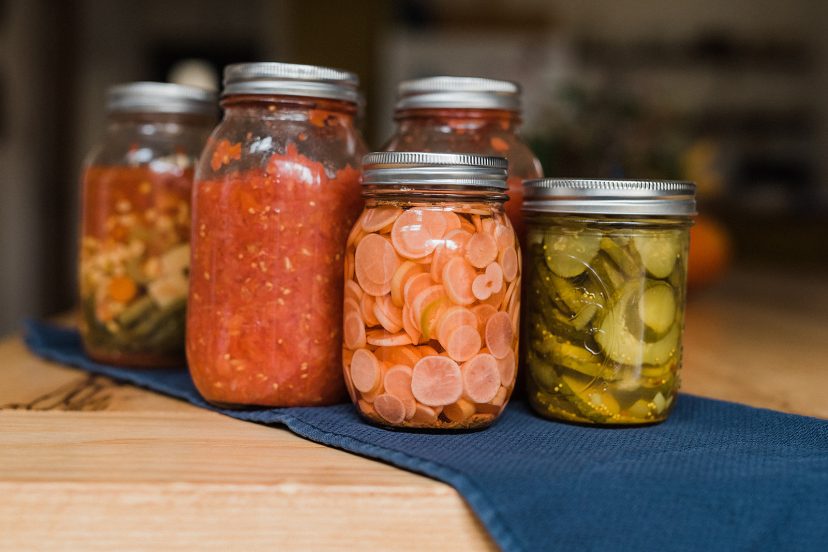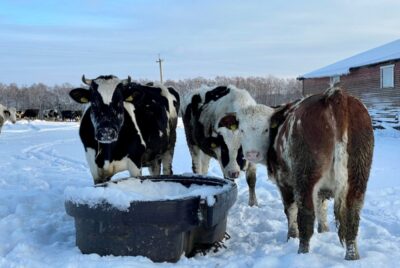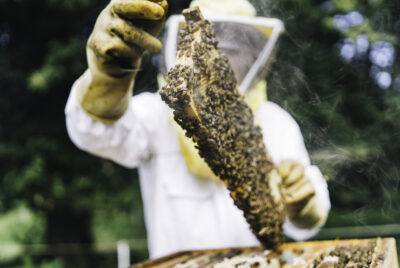The 15 Best Homesteading Skills For Success
"We may earn a commission from purchases made using our links. Please see disclaimer."
Introduction to Homesteading
Hello there, fellow homesteading enthusiast! I’m thrilled you’ve decided to embark on this rewarding journey and learn the essential homesteading skills. The desire to return to a simpler, more self-sufficient lifestyle is more prevalent now than ever. Homesteading offers us the opportunity to live in harmony with nature, develop self-reliance, and even contribute to sustainability.
Importance of Homesteading Skills
Why Learn Homesteading Skills?
 Like any worthwhile venture, homesteading requires a specific set of skills to succeed. These skills are crucial in not just surviving but thriving on your homestead. Mastering homesteading skills allows you to live a more self-sufficient, sustainable lifestyle aligned with nature. When you learn homesteading abilities, you gain independence, save money, and reconnect with traditional ways of living.
Like any worthwhile venture, homesteading requires a specific set of skills to succeed. These skills are crucial in not just surviving but thriving on your homestead. Mastering homesteading skills allows you to live a more self-sufficient, sustainable lifestyle aligned with nature. When you learn homesteading abilities, you gain independence, save money, and reconnect with traditional ways of living.
Self-reliance reduces reliance on mainstream food and products that may contain unhealthy ingredients or environmentally damaging practices. Homesteading teaches you how to provide shelter, food, water, energy, and other essentials through your own hands and resources. Handcrafting and growing your provisions creates a meaningful connection to the items you use in daily life.
Developing proficiency in homesteading takes time and dedication, but the rewards are plentiful. Focus on acquiring knowledge and don’t be afraid to ask experienced homesteaders for guidance. Start with small projects and build up your confidence and abilities.
The Top 15 Homesteading Skills for Success
1. Gardening
Benefits of Gardening
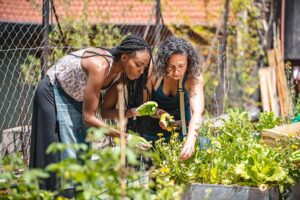 Is there anything more satisfying than nurturing a tiny seed into a flourishing plant that bears delicious, healthy fruits and veggies? Not only does gardening reduce your reliance on store-bought produce, but it also provides a therapeutic connection to nature. It is an invaluable skill that ensures a steady supply of fresh, organic produce right at your doorstep. With experience, you’ll learn the art of companion planting, how to nurture soil fertility, and how to manage pests organically. This understanding can enhance the yield of your crops, contributing to your self-sufficiency.
Is there anything more satisfying than nurturing a tiny seed into a flourishing plant that bears delicious, healthy fruits and veggies? Not only does gardening reduce your reliance on store-bought produce, but it also provides a therapeutic connection to nature. It is an invaluable skill that ensures a steady supply of fresh, organic produce right at your doorstep. With experience, you’ll learn the art of companion planting, how to nurture soil fertility, and how to manage pests organically. This understanding can enhance the yield of your crops, contributing to your self-sufficiency.
Starting and maintaining a productive garden teaches you patience and connects you to the natural rhythms of the land. By growing your own food, you control exactly what goes into the soil, ensuring healthier nourishment. Saving seeds allows you to cultivate crops ideally suited to your climate and soil conditions. There is deep satisfaction in eating fresh produce right from your backyard. Good record-keeping of what you plant and harvest each season informs future gardening endeavors. Share extra produce to spread the joys of homegrown food.
2. Preserving Food
Importance of Preserving Food
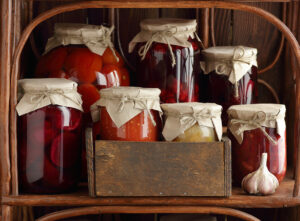 One of the essential skills you’ll need on your homesteading journey is food preservation. From canning to dehydrating and fermenting, preserving your food extends its shelf life, ensuring you’ll have plenty to eat during the winter months or in times of scarcity.
One of the essential skills you’ll need on your homesteading journey is food preservation. From canning to dehydrating and fermenting, preserving your food extends its shelf life, ensuring you’ll have plenty to eat during the winter months or in times of scarcity.
Preserving food allows you to make the most of seasonal abundance and reduces reliance on mass food production and transportation. Learning to preserve food prevents waste, captures peak flavor, and provides insurance against future shortages. You’ll have access to homegrown foods like jams, pickles, dried fruits, and vegetables throughout the year.
Shared preserved goods also make thoughtful homesteading gifts. Follow trusted recipes and methods to avoid foodborne illnesses. Take a class or join a food-preserving group to build your skills. Make sure jars, lids, and equipment are sterile for best results.
3. Animal Husbandry
How Animal Husbandry Enhances Homesteading
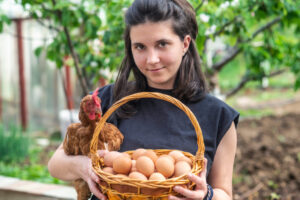 The ability to raise animals is a great asset on a homestead. Livestock provides not only food but also other resources, such as manure for your garden. Whether it’s chickens for eggs, cows for milk, or bees for honey, each animal contributes to the homesteading ecosystem.
The ability to raise animals is a great asset on a homestead. Livestock provides not only food but also other resources, such as manure for your garden. Whether it’s chickens for eggs, cows for milk, or bees for honey, each animal contributes to the homesteading ecosystem.
Caring for farm animals teaches responsibility and an appreciation for the gifts each creature provides. Interacting with livestock on a daily basis fosters a deep connection to the origins of your food. Understanding animal health and welfare ensures humane treatment and quality provisions.
Observing animal behaviors can inspire you to live more authentically. Start with just one or two animals to allow time to learn proper care. Build secure housing, provide fresh water, and supply a balanced diet. Partner with a veterinarian for checkups and medical needs.
4. Carpentry
Why Carpentry Matters in Homesteading
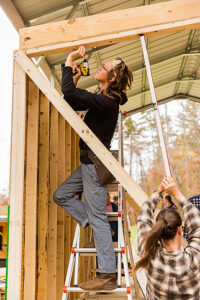 From constructing coops and barns to building furniture and repairs, carpentry skills are extremely handy. These skills can save you money and provide you with the satisfaction of building and maintaining your homestead with your own two hands. Sharpening your carpentry skills enables you to make repairs, build structures, and create handcrafted items adding uniqueness to your home. With carpentry abilities, you can customize features to perfectly suit your needs.
From constructing coops and barns to building furniture and repairs, carpentry skills are extremely handy. These skills can save you money and provide you with the satisfaction of building and maintaining your homestead with your own two hands. Sharpening your carpentry skills enables you to make repairs, build structures, and create handcrafted items adding uniqueness to your home. With carpentry abilities, you can customize features to perfectly suit your needs.
Salvaging and repurposing materials reduces your environmental impact. The creations you craft will become cherished heirlooms, passed down for generations. Begin by learning the proper use and maintenance of hand and power tools. Start small with basic projects to gain confidence and skills. Use protective gear like gloves and goggles for safety. Check building codes for any structures.
5. Sewing and Mending
Value of Sewing Skills
 The ability to create, mend, and alter clothing and other household textiles is not only a cost-saving skill but also a step towards self-reliance. This skill can extend the life of your garments and reduce dependency on fast fashion. Sewing and mending clothes allows creativity in your wardrobe while reducing waste. Learning to sew opens up a world of possibilities for making and modifying fabric items exactly how you envision them.
The ability to create, mend, and alter clothing and other household textiles is not only a cost-saving skill but also a step towards self-reliance. This skill can extend the life of your garments and reduce dependency on fast fashion. Sewing and mending clothes allows creativity in your wardrobe while reducing waste. Learning to sew opens up a world of possibilities for making and modifying fabric items exactly how you envision them.
Repairing beloved items preserves their emotional value. Teaching others to sew and mend strengthens community bonds and resilience. Invest in a quality sewing machine and supplies designed for beginners. Start with small repairs and simple items like aprons. Use patterns suited to your skill level. Join a sewing circle to exchange ideas and get guidance. Give handmade items as heartfelt gifts.
6. Cooking and Baking from Scratch
Advantages of Home Cooking
 By cooking and baking from scratch, you control the ingredients that go into your meals, allowing for healthier, tastier, and more economical food. This skill lets you make the most out of your homegrown produce and preserved foods. Creating meals from scratch provides nourishment while connecting you to time-honored cooking traditions. Mastering cooking and baking teaches you how different ingredients and techniques affect flavors and textures.
By cooking and baking from scratch, you control the ingredients that go into your meals, allowing for healthier, tastier, and more economical food. This skill lets you make the most out of your homegrown produce and preserved foods. Creating meals from scratch provides nourishment while connecting you to time-honored cooking traditions. Mastering cooking and baking teaches you how different ingredients and techniques affect flavors and textures.
You can cater recipes to your dietary needs and experiment with new additions from the garden. Sharing homemade meals with others is a satisfying way to show care and connection. Begin by learning basic cooking methods like sautéing, baking, and roasting. Start with simple recipes and work your way up. Make extras to freeze for busy days. Share recipes and host potlucks to widen your culinary horizons.
7. Basic First Aid Skills
Why First Aid Knowledge Is Essential
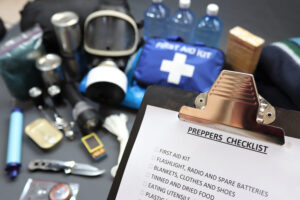 Accidents and illnesses can happen on a homestead. With potentially limited access to immediate professional medical help, basic first aid skills can be lifesaving. This includes treating minor injuries, recognizing signs of more serious conditions, and knowing when to seek medical help.
Accidents and illnesses can happen on a homestead. With potentially limited access to immediate professional medical help, basic first aid skills can be lifesaving. This includes treating minor injuries, recognizing signs of more serious conditions, and knowing when to seek medical help.
Learning first aid prepares you to respond quickly and appropriately to medical emergencies until professional care can be accessed. Having first aid abilities gives you the confidence to handle injuries and sudden illness with calmness and care. You can assist others in the community when needs arise.
Continually expanding your knowledge ensures you stay current with the latest best practices. Keep first aid supplies on hand and check expiration dates. Take Red Cross classes to learn techniques. Print emergency numbers and post them near phones. Use personal protective equipment to prevent disease transmission. Remain calm, provide care, and get help when needed.
8. Natural Remedy Preparation
The Benefits of Natural Remedies
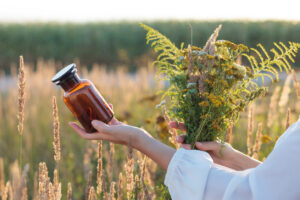 In addition to first aid, understanding how to create and use natural remedies is a beneficial skill. It allows you to turn to Mother Nature for non-emergency health issues. From making salves and tinctures to growing medicinal herbs, the knowledge of natural remedies can come in handy for treating non-emergency health issues. This skill complements traditional medical practices and contributes to holistic health.
In addition to first aid, understanding how to create and use natural remedies is a beneficial skill. It allows you to turn to Mother Nature for non-emergency health issues. From making salves and tinctures to growing medicinal herbs, the knowledge of natural remedies can come in handy for treating non-emergency health issues. This skill complements traditional medical practices and contributes to holistic health.
Crafting natural remedies from plants utilizes nature’s pharmacy for minor ailments. Learning about natural remedies connects you to ancestral wisdom and time-tested botanical treatments. Growing medicinal herbs adds beauty and purpose to your landscape. Sharing natural remedies with others spreads healing and builds community resilience.
Properly identify plants before use. Research possible side effects and drug interactions. Follow trusted recipes from experienced herbalists. Store remedies in sterilized jars out of sunlight. Consult your doctor before using herbal treatments.
9. Foraging for Wild Food
Advantages of Foraging Skills
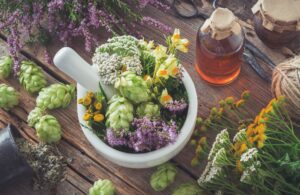 Understanding edible plants and fungi in your local ecosystem can supplement your food supplies and add variety to your meals. Plus, wild foods are often rich in nutrients that are sometimes lacking in cultivated crops. Identifying and harvesting wild edibles introduces novel flavors and nutrients while connecting you to the land.
Understanding edible plants and fungi in your local ecosystem can supplement your food supplies and add variety to your meals. Plus, wild foods are often rich in nutrients that are sometimes lacking in cultivated crops. Identifying and harvesting wild edibles introduces novel flavors and nutrients while connecting you to the land.
Foraging skills allow you to take advantage of nature’s free bounty growing right in your own backyard. Always be 100% certain of plant identification before ingesting. Sustainable harvesting ensures the future availability of renewable wild food sources.
Obtain foraging field guides or take guided tours to learn about edibles in your region. Start with easy-to-identify abundant species like blackberries and dandelion. Never harvest endangered species or polluted environments.
10. Fire Making and Management
The Necessity of Fire Skills
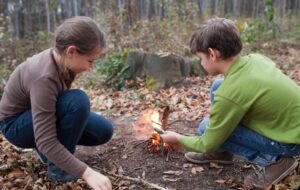 The ability to safely start and manage a fire is crucial for cooking, generating heat, and even for certain preservation methods like smoking. This skill is particularly important for off-grid living. Learning how to use a homesteader wood stove is one of the essential components for success.
The ability to safely start and manage a fire is crucial for cooking, generating heat, and even for certain preservation methods like smoking. This skill is particularly important for off-grid living. Learning how to use a homesteader wood stove is one of the essential components for success.
Mastering fire skills is key for survival, cooking, and warmth in remote homestead locations. Fire provides life-sustaining warmth, protection from predators, and a gathering place for community. Practice fire safety by clearing flammable debris and having extinguishing tools on hand. Teaching children how to responsibly handle fire reduces the risk of accidents.
Stock up on dry kindling and fuel wood before winter. Keep multiple fire extinguishers and blankets nearby. Monitor fires always and completely extinguish them. Allow ashes to fully cool before disposal.
11. Water Collection and Purification
Importance of Clean Water
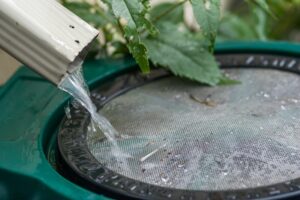 Having a clean water supply is a fundamental need. Skills in rainwater harvesting, water purification methods, and even well digging ensure that you have access to this precious resource. Implementing reliable water collection and purification systems provides the life-giving resource of clean water. Installing gutters, barrels, and filters allows you to capture nature’s water bounty falling from the sky.
Having a clean water supply is a fundamental need. Skills in rainwater harvesting, water purification methods, and even well digging ensure that you have access to this precious resource. Implementing reliable water collection and purification systems provides the life-giving resource of clean water. Installing gutters, barrels, and filters allows you to capture nature’s water bounty falling from the sky.
Learn how to sterilize water over a fire in case of emergency. Conserve water by reusing greywater and fixing any leaks. Calculate your usage needs and research collection options best suited for your climate. Maintain and routinely sanitize systems to prevent contamination. Have backup bottled water available. Monitor quality with test kits for potability.
12. Navigation and Orienteering Skills
Why Navigation Skills Matter
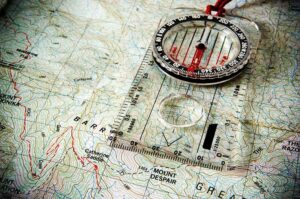 Whether you’re hiking through your property or find yourself lost in the wilderness, knowing how to navigate using a compass, map, or natural signs can ensure your safety. This skill is also useful in land management and planning. Sharpening navigation skills prevents you from becoming lost and aids in property management.
Whether you’re hiking through your property or find yourself lost in the wilderness, knowing how to navigate using a compass, map, or natural signs can ensure your safety. This skill is also useful in land management and planning. Sharpening navigation skills prevents you from becoming lost and aids in property management.
Studying topography maps helps you locate water sources, ideal building locations, and hidden dangers. Mark trails so guests can enjoy your land safely. Pass on navigation knowledge so future generations retain this critical ability. Practice using a compass and map together to pinpoint your location. Note landmarks and points of interest. Let someone know your route before going out alone. Pack emergency communication and survival gear. Teach children early with fun orienteering games.
13. Self-Defense Skills
Why You Need to Defend Yourself
 From warding off predatory wildlife to ensuring personal safety, basic self-defense skills are important, particularly in remote homesteading settings. This could mean learning to use a firearm safely, understanding basic hand-to-hand techniques, or even knowing how to secure your homestead effectively.
From warding off predatory wildlife to ensuring personal safety, basic self-defense skills are important, particularly in remote homesteading settings. This could mean learning to use a firearm safely, understanding basic hand-to-hand techniques, or even knowing how to secure your homestead effectively.
Practicing self-defense enables you to protect yourself, your loved ones, and your property. Assessing potential risks and vulnerabilities allows you to implement appropriate safeguards. Keep dangerous tools locked away securely. Set up perimeter alarms and motion-sensor lights to deter trespassers. Remain level-headed during confrontations.
Learn safety and laws first if using firearms. Take martial arts or self-defense classes to build physical skills. Install sturdy locks, lighting, and video surveillance. Travel in pairs or groups in unfamiliar areas. Trust your instincts if a situation feels unsafe.
14. Energy Production and Management
Benefits of Energy Management
 Knowing how to harness renewable energy sources like solar and wind can lead to energy independence. Plus, learning energy conservation strategies can help optimize your energy usage and save you money for other projects as well as resources.
Knowing how to harness renewable energy sources like solar and wind can lead to energy independence. Plus, learning energy conservation strategies can help optimize your energy usage and save you money for other projects as well as resources.
Implementing renewable energy and efficiency measures contributes to energy self-sufficiency. Installing solar panels, wind turbines, and high-efficiency appliances reduces your environmental impact. Monitor energy consumption to identify wasteful habits. Relying on renewables protects you from grid interruptions and rising energy costs.
Calculate your needs and research DIY renewable systems or professional installation. Look for rebates and tax credits to offset costs. Weatherize your home before installing solar to maximize efficiency. Position systems for optimal sun/wind exposure. Maintain systems for maximum performance.
15. Composting
Why Composting is Essential
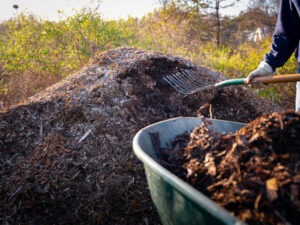 Composting kitchen scraps and animal waste reduces landfill waste and enriches your soil, leading to healthier crops. It’s a simple but effective way to contribute to a more sustainable lifestyle. Composting recycles organic waste into fertile soil amendments benefiting your garden.
Composting kitchen scraps and animal waste reduces landfill waste and enriches your soil, leading to healthier crops. It’s a simple but effective way to contribute to a more sustainable lifestyle. Composting recycles organic waste into fertile soil amendments benefiting your garden.
Maintaining a healthy compost pile is easy with the right carbon-to-nitrogen ratio and moisture level. Finished compost nourishes plants and enhances soil’s water retention and nutrient density. Vermicomposting with worms speeds decomposition. Site compost in partial shade near water and materials. Layer greens and browns in proper proportions.
Turn or stir regularly to introduce oxygen. Use compost tea or top dressings to distribute nutrients. Share extra compost with gardening neighbors.
Conclusion: Your Homesteading Journey
Each of these skills is a valuable tool in your homesteading toolkit. Like any new endeavor, becoming proficient will take time and practice, but remember, every expert was once a beginner. So, be patient with yourself as you grow and learn on your homesteading journey. Immerse yourself in homesteading books, podcasts, and community groups to continually expand your knowledge. Start small and build upon successes. Keep an open and creative mindset as you walk the rewarding path of self-reliance. Make a checklist of skills to guide your learning priorities. Schedule time to practice new abilities consistently. Share your experiences to help others on their journey. Remember that even small steps toward self-sufficiency matter.
FAQ – Frequently Asked Questions
Is homesteading a practical lifestyle choice?
Yes, homesteading can be a practical and rewarding lifestyle choice. It promotes self-sufficiency, sustainability, and a strong connection to nature. It’s important to understand, though, that it requires commitment and hard work. Depending on the degree of self-sufficiency you aspire to, you may need to invest time learning new skills, maintaining your garden, raising livestock, and more. However, the satisfaction of living off your land and the benefits to your health and the environment often far outweigh the challenges.
Can I start homesteading even if I live in a city?
Absolutely! Urban homesteading is a growing trend. While you might not be able to keep large livestock or cultivate a large garden in the city, there are plenty of other homesteading practices you can adopt. You can grow vegetables in containers, compost your kitchen waste, and even keep small animals like chickens or bees. Plus, homesteading skills such as cooking from scratch, sewing, and preserving food can be practiced anywhere.
What is the most important homesteading skill to learn?
While all homesteading skills are valuable, knowing how to grow and preserve your food can be considered fundamental. It allows you to provide for your nutritional needs, reduces your reliance on store-bought food, and gives you control over what goes into your body. However, the “most important” skill can vary depending on your personal circumstances and goals for homesteading.
How can I learn homesteading skills?
There are many resources available to help you learn homesteading skills. Books on the subject can provide detailed instructions and insights. Online courses and videos can offer step-by-step guides and demonstrations. Local community colleges or adult education programs might offer classes on gardening, woodworking, animal care, and more. Joining a local homesteading community or online forum can also provide support and advice from experienced homesteaders.
Do I need a large piece of land to start homesteading?
No, you don’t necessarily need a large piece of land to start homesteading. While having more space can provide opportunities for larger gardens and a wider variety of livestock, you can practice many homesteading skills even in small spaces. For example, container gardening, vertical gardening, and indoor plants are great options for urban dwellers or those with limited outdoor space. Remember, homesteading is about self-sufficiency and sustainability, which can be pursued regardless of the size of your property.
Remember, homesteading is not just about the destination but the journey. Enjoy each step, learn from each experience, and celebrate each milestone.
Happy homesteading!


